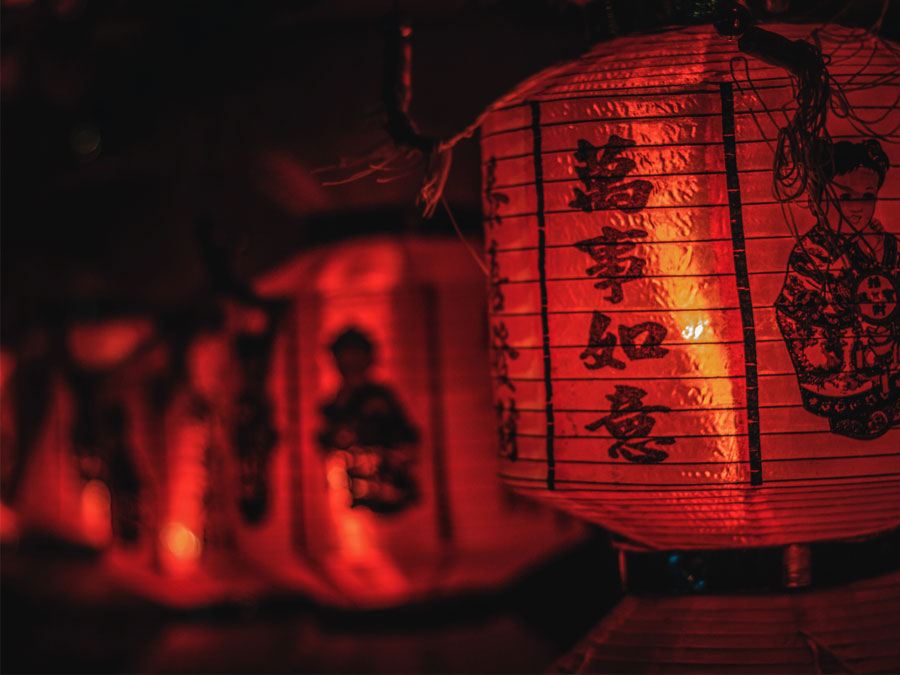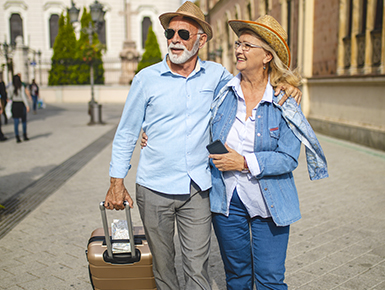
Is China safe for tourists?
China is widely regarded as a safe and captivating destination, filled with vibrant culture, stunning landscapes, and ancient history waiting to be explored. Before you dive headfirst into your adventure, take a moment to think about how to enjoy the wonders of the Middle Kingdom while keeping you and your travel companions safe and comfortable.
Our guide to staying safe in China will help you become familiar with the customs, culture, laws, and security practices you’re likely to encounter. If you’re venturing off the beaten path, take some extra time to research your destination and stay updated with the latest safety and travel advice both before and during your trip.
Be mindful of petty crime and scams
Serious crime in China against foreigners is reportedly rare; however, petty crimes do happen. In crowded areas, pickpockets may target tourists, so make sure to keep your belongings close to you and take precautions when in tourist areas. Drink spiking is also a risk to be aware of. Stay alert and don’t accept drinks from strangers or leave any drinks unattended. Exercising general caution and mindfulness will help ensure you have a safe and enjoyable experience. A game of ‘spot the pickpocket’ can help demonstrate to your companions what to watch out for. Whoever spots the most gets a free dinner!
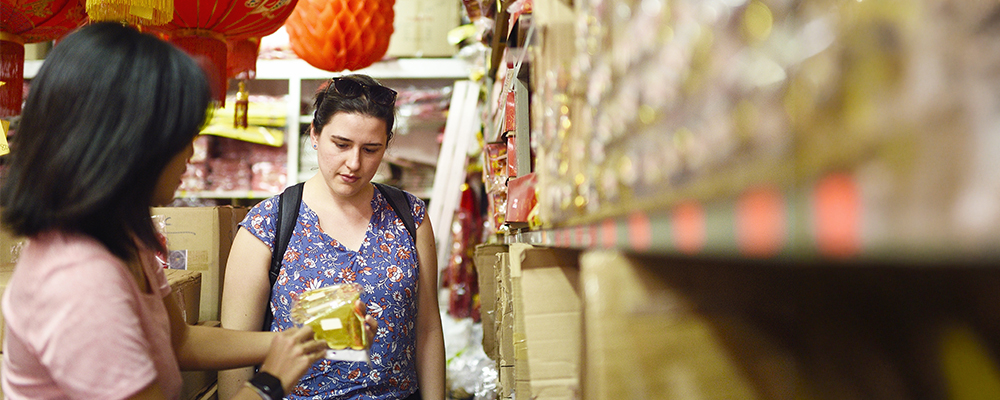
Scams
Scams and tourist traps are common in many countries, and China is no exception. Below are some of the most common scams in China to be aware of before your trip:
-
Teahouse scams
Whilst you’re strolling the streets or doing a touch of shopping, you may be approached by young and friendly individuals who will chat to you and try to befriend you. They will suggest going somewhere for a cup of tea or coffee to meet locals – this is their way of trying to get you into a teahouse where they will surprise you with an unpleasant bill. Politely decline and continue with your day!
-
Bike-sharing barcode scam
Take extra precautions when scanning barcodes or QR codes on rental bikes. The legitimate code may sometimes be obscured by a fake one that redirects you somewhere dodgy. Examine the code before scanning it to verify that the barcode corresponds to the official bike-sharing service by checking the URL or app details.
-
Taxi scams
Most taxi drivers follow the rules and are friendly. However, some drivers may try to take advantage of the fact you’re a tourist and overcharge. The best way to avoid this is to always ask beforehand for your journey to be charged by meter. Avoid taxi drivers who approach you (especially at the airport), as they are often known to be ‘black taxi’ scammers.
-
Counterfeit money scams
Counterfeit money is unfortunately common in China, and tourists are often the target. But don’t let this spoil your adventure! There are a few simple steps you can take to protect yourself. Only withdraw cash from reputable sources, like banks or ATMs, and stick to shopping from official retailers. It’s also a good idea to carry smaller notes (under ¥50) to make transactions easier and reduce the risk.
Navigate roads and public transport safely
A key thing to keep in mind is that you must have a valid Chinese driving license before getting behind the wheel as international driving permits are not accepted in China. There can be significant penalties if you don’t have the correct license.
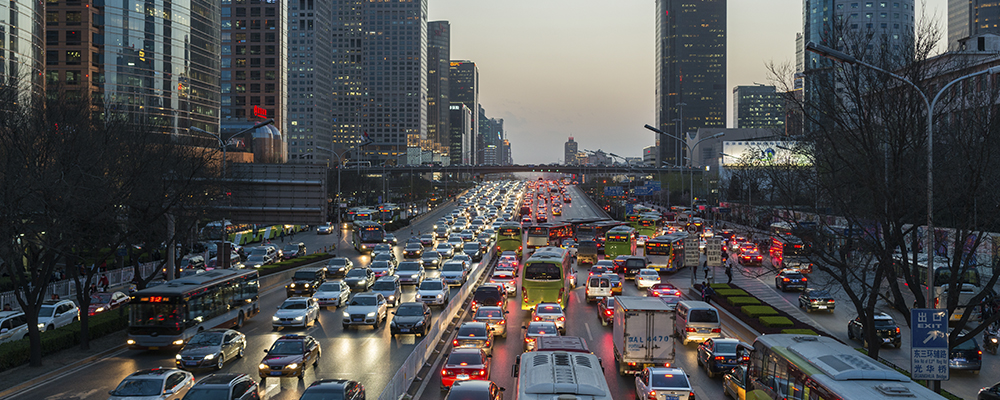
China’s urban roads and highways can be congested, and drivers have varying levels of respect for the road rules. In the bustling urban centres, roads are generally well-maintained, offering a smooth drive for travellers exploring by rental car or motorbike. Conditions can change swiftly as you head into the more rugged, rural landscapes, where the roads may be poorly maintained or more hazardous.
Public transport in China is considered relatively safe and efficient. However, petty theft on overnight rail is regarded as quite common, so stay alert and keep your belongings close. To avoid any ticket scams for public transport, purchase them from official outlets.
In Beijing, the subway is modern, clean, and reliable, connecting most of the city's key attractions, such as the Forbidden City and the Great Wall. Shanghai's metro is equally efficient and widely used to navigate the city's vibrant districts, including the Bund and People's Square. Always be aware of your surroundings, especially during rush hours when the stations and trains can get crowded.
Keep an eye out for extreme weather
China can experience a variety of extreme weather conditions and natural disasters, including earthquakes, typhoons, and floods. To minimise your risk, research both the region and the time of year you plan to visit. For example, the eastern coasts of China are more likely to experience typhoons from May to November, while other areas may be more prone to flooding or earthquakes. To stay safe, stay informed and follow guidance from local authorities, especially during severe weather events.
Additionally, air quality in some parts of China, particularly in major cities such as Beijing and Shanghai, can be poor due to industrial pollution and other environmental factors. Travellers who struggle with respiratory issues, such as asthma, may be particularly affected by poor air quality in China. Check air quality reports regularly and take precautions, especially during winter months when air pollution tends to peak. On days with high pollution, consider wearing a mask and avoid strenuous outdoor activities. If you're staying in China for an extended period, an air purifier can help improve indoor air quality.
Respect cultural etiquette and China’s local laws
It should go without saying that Chinese culture is different from Australia. It's important to be aware of the country's strict laws and cultural differences. Local laws may be hard for many tourists to understand, in part because laws are not always enforced consistently.
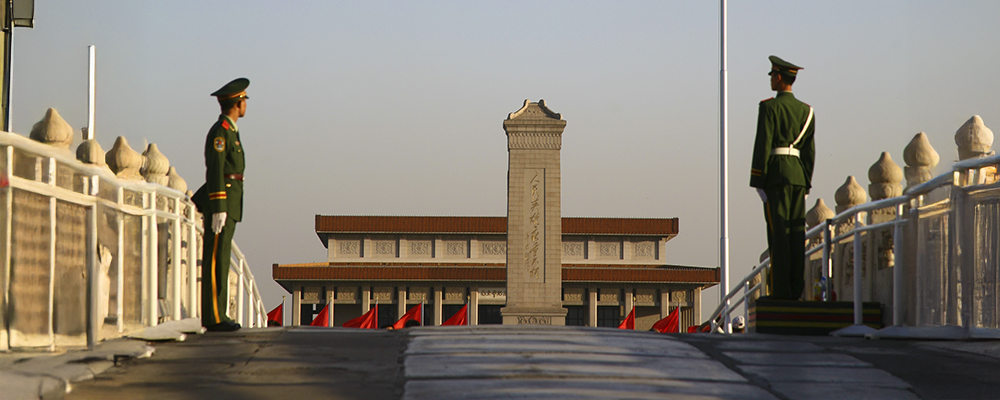
China has a broad interpretation of national security laws, and even minor infractions can result in arrest or deportation, sometimes without intention. Demonstrations and large gatherings are heavily controlled by authorities. Involvement in such events—whether passive or active—can lead to severe consequences, including arrest or detention. Tourists should avoid participating in or photographing protests, particularly in sensitive regions like Tibet and Xinjiang, where there are ongoing political tensions.
So, is China safe for tourists? While it’s a generally safe destination, like anywhere, it’s important to stay aware of your surroundings and be prepared for the unexpected. Do your research, stay updated on travel advisories, and get your travel insurance sorted for peace of mind. With the right precautions, you’ll be ready to explore the wonders of China, and embrace everything this vast country has to offer.
The content of this article is general and provided for information purposes only. Southern Cross Travel Insurance (SCTI) doesn’t guarantee or warrant the accuracy, completeness or currency of any article.
This article may contain hyperlinks to other websites owned or operated by third parties, or references to third party products or services. SCTI isn’t responsible for, and makes no recommendation about, the content or accuracy of any third party website, or for the suitability or performance of any product or service. The inclusion of a link in this article doesn’t imply that SCTI endorses the website or third party product/service.



